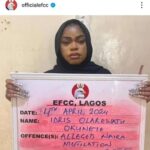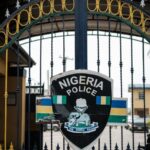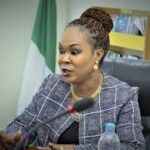Senator Kofoworola Bucknor-Akerele, a former deputy governor of Lagos State, had represented the Lagos Central Senatorial District in the National Assembly between 1992 and 1993. In this interview, the lawyer, broadcaster and politician speaks on her years in politics and what NOT to expect of President Tinubu’s government.
Looking at your biography, it seems you were born with not just a silver but a golden spoon, is that a fair characterisation?
Well, they say I was born with a silver spoon in my mouth, but I was not brought up like that. In the family where I grew up, we were taught to do everything. People get surprised if I say that when I have a tear in my dress, I mend it myself. I still go into the kitchen to cook and help clean my house. That was the way we were brought up despite the fact that my family were quite well off.
Your grandfather was a lawyer, and your father, Dr Oni Akerele, was the first surgeon in Nigeria, that is quite elitist.
Yes. In fact, the socio-cultural group Egbe Omo Oduduwa was founded in his house in London, where he practised medicine.
And you attended a boarding school in London when you were 10 years old?
Yes, I went to a boarding school at the countryside in England. I think most English people had not seen a lot of black people at that time. They used to ask if we had elephants and things like that. Of course I would tell them that I had an elephant that came through my garden every morning; and things like that.
Would you say it was baffling for a 10-year-old Nigerian girl to be in school with English children?
Yes. It felt a bit strange, but gradually, one adapted because in that setting everybody was treated the same. They didn’t treat you as if you were a black girl or different to other girls.
Did your classmates really take you as a normal girl?
Oh yes, we related very well. Not only that, the school had people from different parts of the world, so it was more or less international.
Was that in 1949?
Yes.
Tell us about the rest of your days in England after secondary school.
After secondary school, I read Law and was called to Bar. I was also freelancing for the British Broadcasting Corporation (BBC), so I did a course in journalism as well at the London Polytechnic, which is now the University of South Bank and graduated with a diploma.
Did you practise law or you concentrated on journalism?
Funny enough, I practiced journalism though I still do a little bit of law on the side.
In the 1960s, law practice was popular in Lagos. It was also in your family, so it is strange that you left the profession, which is your first degree and went into journalism, what happened?
I think it was because Voice of Nigeria was starting and they were recruiting people; and they knew I was in broadcasting, so I was recruited.
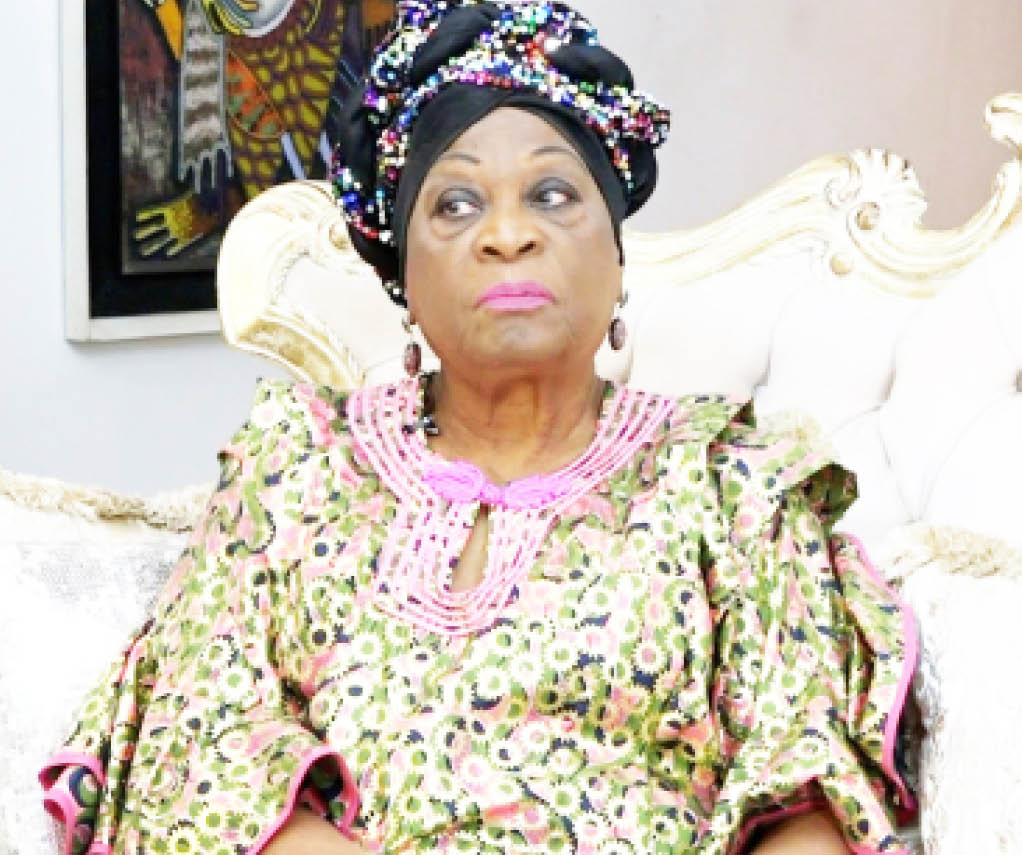
At what point did you come back toNigeria after schooling?
I came back in 1963.
And straight into journalism?
Yes, straight to the Voice of Nigeria.
It is also noticeable that you didn’t really stay long as a journalist; you seem to have left rather quickly?
I went into advertising. I formed my own advertising company, and we were doing very well. I also became the vice president of the Advertising Association of Nigeria.
You are better known as a politician; at what point did your interest in politics start?
I come from a political family. As I said, my father was the first president of the Egbe Omo Oduduwa; in fact, he founded it in his house in London. Obafemi Awolowo was the secretary. So I would say I was born into politics.
The group became the Action Group?
Yes. My father even contested. He was very conservative in a way, but he always encouraged his female children to go further and do all sorts of things. In fact, my late aunt, his sister, was the first female doctor in West Africa.
It seems he did not make a big career in politics though he was there in the beginning; Awolowo became better known, why?
Well, he contested on the platform of the Action Group in Lagos but lost to the National Council of Nigeria and the Cameroons (NCNC). He contested with J.N. Johnson. They were great friends. His main purpose in life was medicine, so he pursued it. Politics didn’t divide them. In fact, my father was running one of his clinics Johnson’s house on Apapa Road. Lagos. They were very close friends until they died.
How did your journey into politics begin?
I can’t really say how it began, but it was when we had two political parties.
The Social Democratic Party (SDP) and National Republican Convention (NRC)?
Yes. In fact, I started in the NRC. My big brother (first cousin) and my father encouraged me to go into politics. He was the main person that asked me to join the party, and I did.
It was later on that the late Prince Dapo Shijuade persuaded me to join the SDP. Alhaji Jakande was my mentor. He encouraged me very much. It was from there that I ran for the Senate on the platform of the SDP and represented Lagos Central.
Your journey to the Senate was quite a battle; indeed, one can say you were a senator by default because stronger candidates were kind of disqualified, do you agree with me?
Yes. It was really a terrible occasion. I think the convention to elect the two main candidates—the late Wahab Dosumu and Shittu Bey—was held in Surulere. At the venue, there was a squabble of sorts as nobody wanted to step down. They said I did not stand a chance, so I should give up, but I refused, saying that even if I got only one vote, they should record it for me.
Was that Option A4?
Yes.
So your delegates lined up behind you?
Yes. In fact, I started with 60 delegates before I got to the venue. When I got to the venue, it was reduced to a little above 30.
And when the actual voting started, my delegates were reduced to eight.
What happened to the others?
They were all bought and I was told to step down, but I refused. We were all told to line up with our delegates and the main contenders somehow could not manage to get their people to stand.
Maybe there were too many delegates behind them.
Yes. I think they were trying to snatch each other’s delegates, but I stood and insisted that my delegates should be counted and recorded. Eventually, it turned out that my votes were the only ones counted and recorded at that congress.
Was it the court that gave you victory?
No. They were disqualified because their votes were not counted and recorded.
So that was how you represented Lagos Central as a senator, along with Senator Bola Ahmed Tinubu.
Yes. He represented Lagos West.
You were in the Senate for a short time, less than a year or so; how did it go?
The SDP formed the majority. Dr Iyorchia Ayu was our president but there was a move to remove him. Some of us, including Tinubu, supported him, but he was eventually ousted. Soon after that, there was a coup that brought in Sani Abacha.
Was that the beginning of your political relationship with Tinubu?
Yes. We had a relationship because we both came from a different camp but were in the same political party, so we had to work together. We were known as the Jakande group.
It took 9 or 10 years before we heard about you again in politics, what were you doing after your short time as a senator?
I concentrated on my advertising agency. I also had a bakery. So I went back into running my businesses.
But you came back to politics as the deputy governor of Lagos State in 1999, how did that happen?
I was a member of the steering group of the National Democratic Coalition (NADECO), which principally formed the Alliance for Democracy (AD). In fact, I was the person that went to Abuja to register the party.
It was on that basis that Tinubu went into exile. He came back and joined the AD. That was how I was chosen to be his deputy when he won the primary election and became governor.
Didn’t you contest for the governorship position at that time?
I contested but Tinubu won. I resigned to fate and was thinking of going back when Pa Onasanya, who was one of the leaders of the AD, phoned me and said they would want me to be Tinubu’s deputy. I didn’t want to be his deputy at all, but I was persuaded by the elders and founders of the party. He belonged to a different group, so they felt that if I did not agree to be his deputy, those who actually founded the party would not have a say in the government. That was how I was persuaded to become his deputy.
So you were the candidate of the elders of the party?
I was the candidate of the founders of the AD.
Are these founders the elders of Afenifere?
Yes. I was also the treasurer of Afenifere in Lagos State.
You were reluctant to become Tinubu’s deputy, but in a sense, he also didn’t want you to be there; were you kind of imposed on him?
Yes. He didn’t want me at all.
So how was your experience working with him?
We didn’t really work together because he didn’t want me. He tried to relegate me to the side. Eventually, things got to a head and my family asked me to resign and I did.
By the time you resigned, there was a move to impeach you in the Lagos House of Assembly?
Yes. There were false accusations against me. In fact, I put in a reply to the accusations, but my family felt he was out to ruin me, so I was asked to resign.
I read somewhere that the basis of your disagreement was that as soon as he became governor he started thinking of becoming a vice president to Atiku Abubakar in the 2007 election. Is that true?
Yes. What happened was that we were having various meetings, and when I saw what was going on, I called them a cabal. I am sure it is the same cabal in power now.
Who are they?
I don’t want to call names. We had just had a meeting with the Canadian high commissioner, which I organised because the meeting we had with the American ambassador was a bit of a disaster. I was the link between NADECO and the embassies, so I saw that the meeting was not as it should have been. So I took charge and arranged a meeting with the Canadian ambassador.
What did you notice about the meeting with the American ambassador that didn’t go well?
It was just the way the meeting went; all sorts of people were walking in and out, so it was not really as a meeting should be. So I organised that meeting and he was very happy with it and said it was very nice. It was at that stage that I took the opportunity and wanted to talk to the governor privately.
Were you still in transition?
We had not taken over at that time. When we met, I asked why he wanted to remove the chairman of the party in Lagos State, Alhaji Ganiyu Dawudu and he said it was because he did not support him to become governor. I said he didn’t support me either, but he was the most competent politician in Lagos, so I felt we should leave him there. He said we had to remove him and take over the party from those elders because they were too old. He said “they are now in the departure lounge” and needed to take their boarding passes. I disagreed. I did not know that Lai Mohammed was eavesdropping on our conversation. He came in and said they had to go because he was going to be vice president to Atiku. I said that Atiku was not in our party, so how would that be. He said I should wait and see.
I told him that as far as I was concerned, with my upbringing and where I come from, we don’t do things like that. So I did not support him in his bid to take over the party. Eventually, the AD landed in court as we had different chairmen. He eventually formed the Action Congress (AC) and Atiku became the presidential candidate. The rest is now history.
Is it true that as governor, Tinubu removed you as his deputy?
He didn’t remove me; I resigned.
Because he didn’t want you as deputy, he would not hand over to you when he was travelling, does it mean that you were not really relevant in his government?
There was really not much point of my being there.
A lot of people say that Tinubu made Lagos a model when it comes to governance and that’s one of the reasons he won election to become president today. As his deputy governor, at least for one term, and you have lived in Lagos all your life, do you think this is a fair characterisation?
I hope they are not going to say it is sour grapes, but I don’t think it is a fair characterisation. I don’t see any model about Lagos. Lagos has always been Lagos.
If you look at a book that was printed years ago, the Red Book of West Africa, and read through all the people who were famous merchants, including my grandfather, the late Davies Aristo Akerele and so many prominent people, you would know that Lagos has always been Lagos because we have the seaport, we are traders. Our people have always been merchants.
If you look at Marina at that time (my family still has property in that axis) you would know that Lagos has always developed itself because it has the seaport; and this is where people come to trade.
Are you saying the face of Lagos did not really change when Tinubu was governor?
I don’t think the face of Lagos has really changed. But I think the people of Lagos have changed its face. I don’t see any particular thing that has changed.
Now that Tinubu is the president of the country, don’t you think there is anything – experience or model – that can be taken from Lagos to the national level; should we expect anything?
For taxation, maybe yes. But I believe Lagos lost a lot from the administration of Tinubu, in that a lot of companies moved out of the state to Ogun because of his taxation regime. We lost a lot of businesses.
Are you impressed with the first steps President Tinubu has taken in office?
Well, I think all Nigerians believe that subsidy should be removed, but before doing something like that you should have planned the palliatives to go with it. I don’t think the planning was good enough.
Has any policy in the last two months impressed you?
I don’t think so.
What do you say about the exchange rate?
It is an absolute disaster. I intend taking my holidays abroad, but when I heard of the exchange rate, I don’t even know how I am going to do it.
Do you have any expectation that there would be improvement under the Tinubu presidency?
You see, politics and governance have become a matter of money and I don’t know where that is going to take us. Unless we come away from this idea that everybody and everything is buyable, I don’t think we can see any improvement in the status of Nigeria and the people.
Would it be fair to say that your assessment is because you are a member of the Board of Trustees of the Peoples Democratic Party (PDP) and you were defeated by Tinubu’s All Progressives Congress (APC)?
I am not sure that we were defeated. As you know, we are at the tribunal at the moment and we can only say we were defeated when the tribunal says so.
A lot of people have said that Nigerian judges hardly upturn a major election like this one; do you still expect that something would happen at the tribunal?
As a lawyer, I hope the judges at the tribunal would deal in the facts before them. I think what is before the tribunal is very clear and hope they would be able to take the right decision.
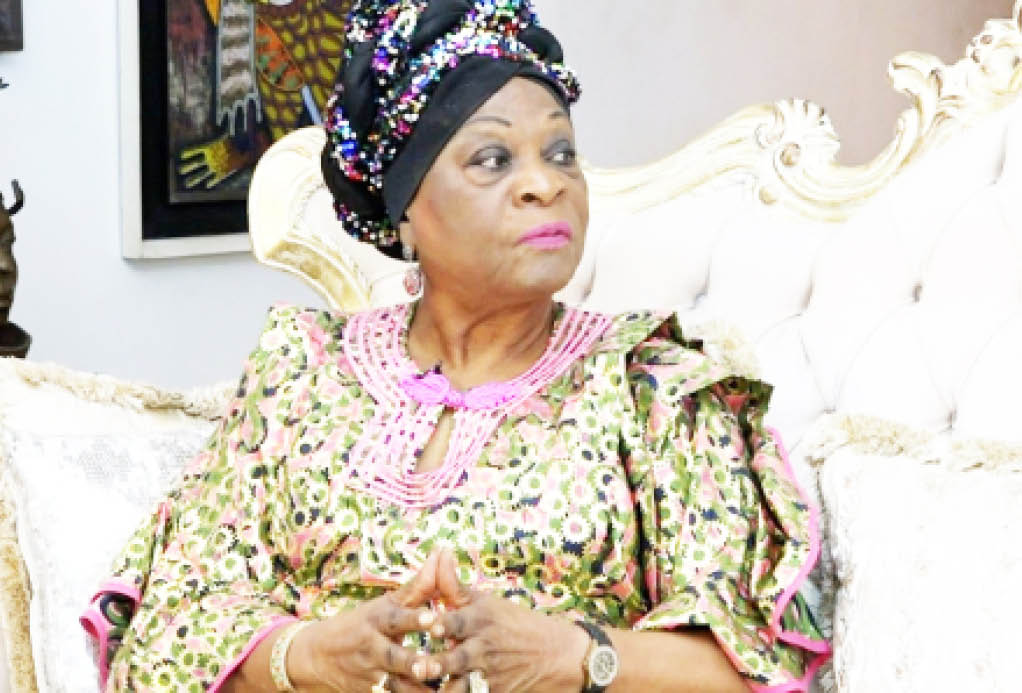
Do you think your party made a mistake by not reconciling with the G-5 governors in hindsight?
Yes and no, but I don’t think that was the real problem. I think our problem started when we abandoned zoning. But that does not mean we could not have won this election. We really don’t know the real result because the Independent National Electoral Commission (INEC) stopped halfway and there was manual collation. And we all know that once manual collation takes place, all sorts of things can happen.
Don’t you think that if you had reconciled with the G-5, even at the expense of the chairman of the party, it would have improved your number of votes.
We don’t know the number of our votes, so I cannot say whether it would have improved or not. We need to get the real tally of the votes and that is when one can actually come to a conclusion.
At 84, are you still active in politics, apart from being a member of the Board of Trustees?
As a trustee, I take my role seriously; I am still very active. I still go to Ward meetings. I was running around on election day in jeans and t-shirt.
One of the challenges you had as deputy governor was that you were not seen to be loyal to the Afenifere or NADECO philosophy because of your link with your husband, Alhaji Ibrahim El-Yakub.
There was never a dispute about my loyalty to Afenifere or NADECO. In fact, the first time I heard of it was when Tinubu brought it up and said I was giving information to somebody in the Directorate of Military Intelligence (DMI) and the State Security Service (SSS) because I had links with them. It was obviously a false assumption.
Certainly, the leaders of Afenifere do not have doubts about me. I am still very much in the group.
Do you think your marriage to Alhaji Ibrahim El-Yakub from Kano has anything to do with these suspicions?
I don’t think Afenifere elders had a suspicion, certain people just wanted to use it; that’s all.
You never used his name as your surname, why?
Actually, my passport bears Mrs El Yakub. It was just that I could not use his name to contest in Lagos State because people would say that one Hausa woman wanted to take their position, or something like that. I had to use the name of the famous Akerele. My mother was Mrs Bucknor and my father was Dr Akerele, so I combined both. It was political.
Alhaji Ibrahim is from Kano while you are from Lagos, where did you meet?
We met in Lagos here. He was working at the UAC. We met at a cocktail party organised by the late Zanna Bukar Dipcirima and things developed.
How many children do you have?
Two; and they are grown up now.
Are they in Lagos or Kano?
They are in Lagos, but we go to Kano very often. In fact, we should have been in Kano for sallah but a friend of mine who is a Muslim usually comes to me for Christmas, so I went to her.
Is she from Kano?
She is from Lagos here.
How is your Kano connection now?
Very close; we talk to my stepchildren all the time. And my children are very close to their brothers and sisters. We have a very close relationship. They stay here when they are in Lagos.
Was inter-tribal marriage challenging for you?
It was very challenging because my parents were against it, but eventually, they came round. My grandmother in particular was very fond of Alhaji. Anytime she saw him she would say, “Omoba Sokoto” and I kept on saying, “Mama, it is “Omoba Kano.” She imagined he was from Sokoto.
You are 84 but you look very strong, what is the secret?
I try to eat balanced diet. I don’t eat a lot. I think that as you get older your appetite folds because I found out that I am not eating as much as I used to eat. I also exercise. Of course I try to exercise my brain too. I am trying to learn to play chess, which is very good for the brain. I have a swimming pool here, so occasionally, I swim.
Do you take any special diet, or is there any restriction on what you eat?
I limit my intake of carbohydrate and try to eat more vegetables and fruits.
What about protein?
Protein too; I eat mainly fish and chicken.
Do you have any habit or hobbies that occupy your time?
What occupies my time is politics; it is my hobby. I am also rearing some animals; I have four cows.
In Lagos or Kano?
Here in Lagos. I have a place in Ibeju Lekki where I rear them. I was very pleased to hear that one of my sheep gave birth to two sheep yesterday.
So it is more of fun than economic activity.
Yes, it is more of fun. I even give my animals names.
Do you often go on vacation?
I like going on cruises; I like being on the sea. I think it is very refreshing.
Which interesting places have you been?
I have been in almost all parts of West Indies. I have been to Brazil, and this year, I am going to see some of my nephews in the States.
What about the Pacific Islands?
I haven’t been to the Pacific Island yet, but I have been to Egypt to see the pyramids. The next place I want to see is the Taj Mahal so that I would have seen all the seven wonders of the world.
What is your hope for Nigeria?
My hope is that Nigeria would re-orientate its values. What I see now is that the young people are looking to see how they can make money; they are not really looking to see how they could make Nigeria a better place for themselves. They seem to think that money is what is going to make it better.
There is the need for honesty, hard work and belief in God. Those are the main values that will change Nigeria into what we want.
A lot of people mention God —Christians and Muslims—and take it seriously, but it doesn’t show in our politics and lives, why is it so?
It is because money has become the god ruling our lives. It shows that we have lost our values somewhere along the line.
Do you have hope that we can recover from this, at least in the short term?
Well, I hope so because I think there is a group of young people now who want to see a change. I am hoping that they would come together and manifest that change. We are old now and are on our way out. As they say, we are waiting for our boarding pass, but I have hope in the young people to effect the change.
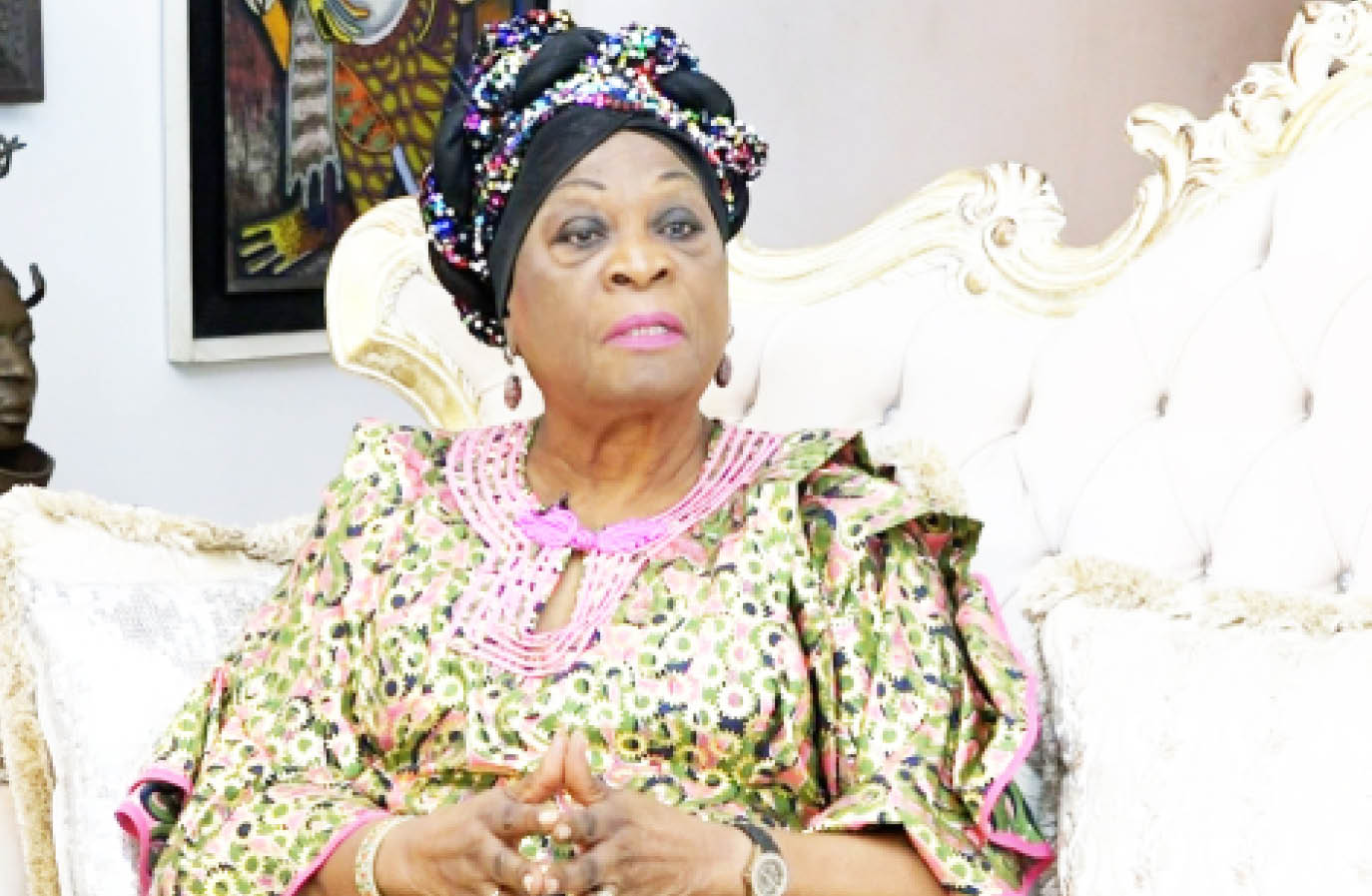
 Join Daily Trust WhatsApp Community For Quick Access To News and Happenings Around You.
Join Daily Trust WhatsApp Community For Quick Access To News and Happenings Around You.
